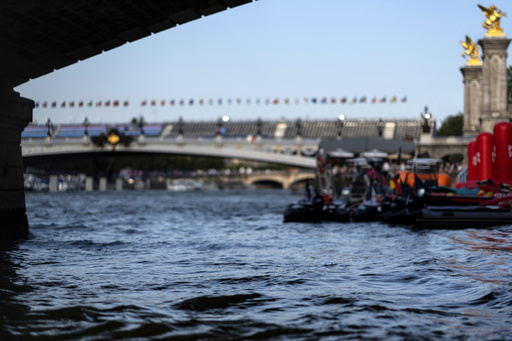In Paris, concerns about the water quality in the Seine River have arisen as the city hosts the Olympics. Daily testing of water samples is conducted to monitor bacteria levels in the river, especially as events like swimming and triathlons are scheduled to take place.
The presence of harmful bacteria like E. coli and enterococci in the water can indicate contamination from sewage or fecal matter, which can lead to illnesses such as diarrhea or infections. The impact of exposure to these pathogens can vary depending on factors like age and health status.
Changes in bacteria levels in the Seine River are influenced by factors like weather conditions. Heavy rain can increase bacteria levels by causing runoff into the river, while sunlight can help reduce bacteria through UV rays. Paris invested significantly in infrastructure improvements, amounting to 1.4 billion euros, to mitigate the impact of weather-related fluctuations in water quality.
Organizers rely on water quality tests to make decisions about the safety of athletes competing in the river. The tests assess fecal bacteria levels, particularly E. coli, and follow guidelines set by organizations like the World Triathlon and the European Union on permissible levels for water quality.
Despite efforts to ensure water safety, concerns persist about the effectiveness of current testing methods. Some experts question the accuracy of the tests and advocate for more comprehensive approaches to monitoring water quality, emphasizing the importance of accurately assessing the risks posed by bacterial contamination in the river.
Ultimately, the decision on whether to proceed with events like the triathlon mixed relay is made based on a combination of water quality analysis, sanitary inspection, and weather forecasts. Organizers continue to monitor the situation closely to ensure the well-being of athletes participating in water-based competitions during the Paris Olympics.


